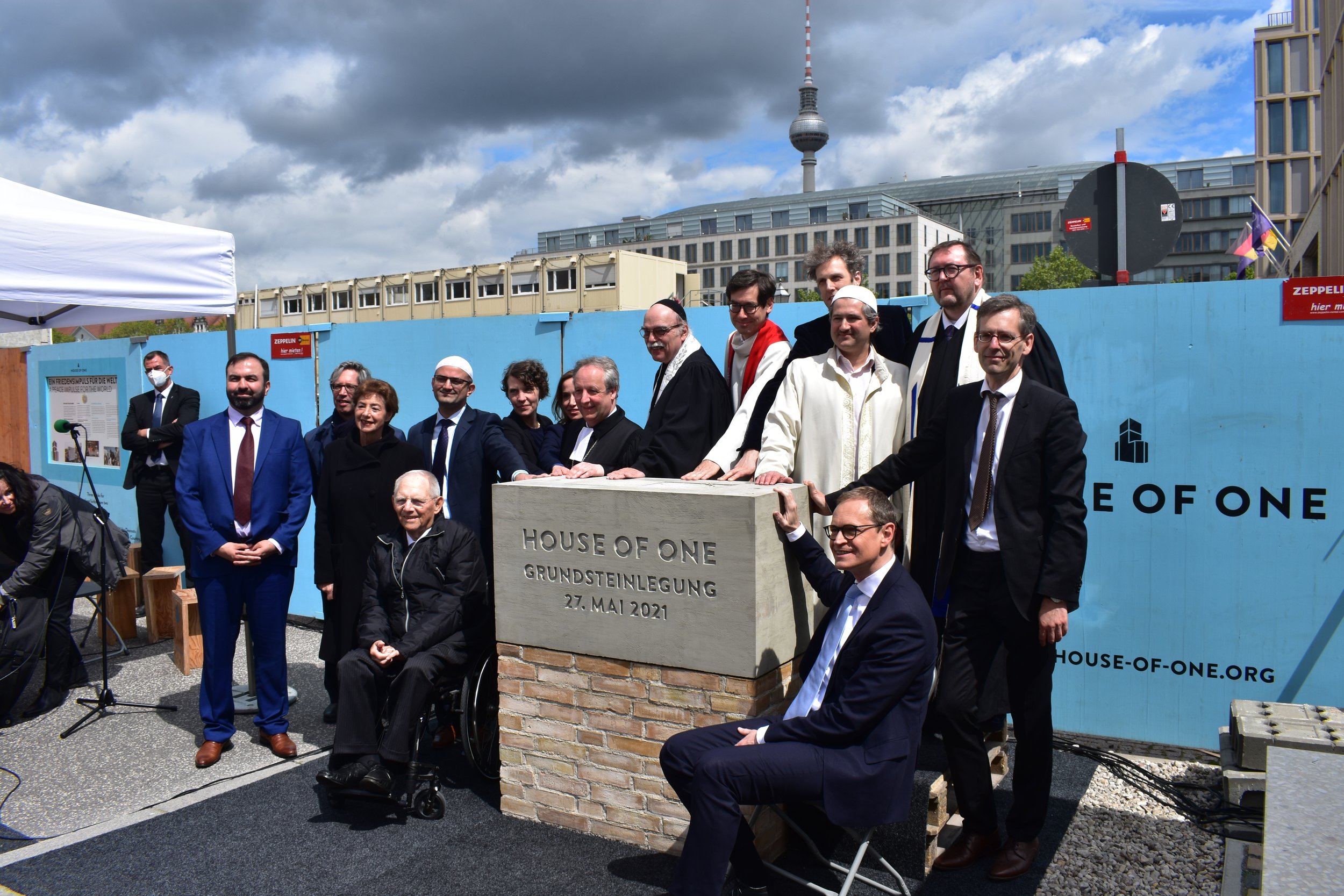Azza Karam was just about to step up to the podium at the Inselhalle in Lindau, Germany to accept the position of Secretary General of Religions for Peace International (RfP) on Aug. 23, 2019.
Shortly before her speech, she spoke off-stage with Sonia Guajajara, an indigenous representative from Brazil.
Karam was leaning in, listening carefully to what Gaujajara had to say about the environment and the need for RfP — a multi-religious platform with the representation of diverse religious institutions and communities — to make a bold statement about climate change. As Gaujajara finished, Karam smiled, thanked her, and said, “when it comes to issues like climate change, what the world needs is more women like you.”
Perhaps it is telling that before one of the more momentous speeches of Karam’s career, she wasn’t pacing backstage or making final preparations for the presentation. Instead, she was taking time to hear, and be present with, one of the valued, female members of the organization she was about to accept the leadership of.
That, as Karam tells it, is one of the prime directives of her tenure as RfP Secretary General — to raise up women’s voices within and across religious traditions and see her fellow females not only “take their seat at the table,” but step out in front and lead the way to meaningful change on a range of issues confronting the world today.
To that end, Karam’s RfP — with the Foundation Peace Dialogue of the World Religions and Civil Society (Ring for Peace) and supported by the German Federal Foreign Office (Ministry of Foreign Affairs) — is convening the first assembly on “Women, Faith and Diplomacy: Keeping the Faith and Transforming Tomorrow.”
Originally scheduled to take place in Lindau, the event is now being held online, November 10-13, 2020. More than 600 participants from 90 countries are gathering virtually, and in person, to discuss the role of women in the world’s religions and their leadership in the realms of faith and diplomacy.
A peace and light ceremony held on Nov. 12 welcomed in-person participants. Photo provided by Ring for Peace.
Karam said it is an opportunity for representatives from the media, civil society, international development, academia and religious institutions to celebrate how far they’ve come in terms of women’s leadership on issues of peace and security, sustainable development and human rights.
The whole point of the assembly is to help attendees better “appreciate the breadth and the depth of contributions of women in the realms of faith and diplomacy across the world,” Karam said.
At the same time, it is also an opportunity to wrestle with how far they have to go.
Women’s leadership — and resistance to it — in these realms is something that Karam is intimately familiar with. Over a decades’ long career in academia, diplomacy and interreligious dialogue, Karam has faced impediments to her fierce initiative from a variety of colleagues. Karam said she has frequently faced belligerence from people of faith who would not accept her leadership.





